While few would argue that proper nutrition is necessary for the health of major organs, the skin’s health is rarely mentioned within this context. As it turns out, the foods you put into your body can have just as significant an effect on your skin. Fortunately, there are a number of foods that can improve your skin’s texture and even help protect it from damage. Here are several foods for healthy skin.
Avocados 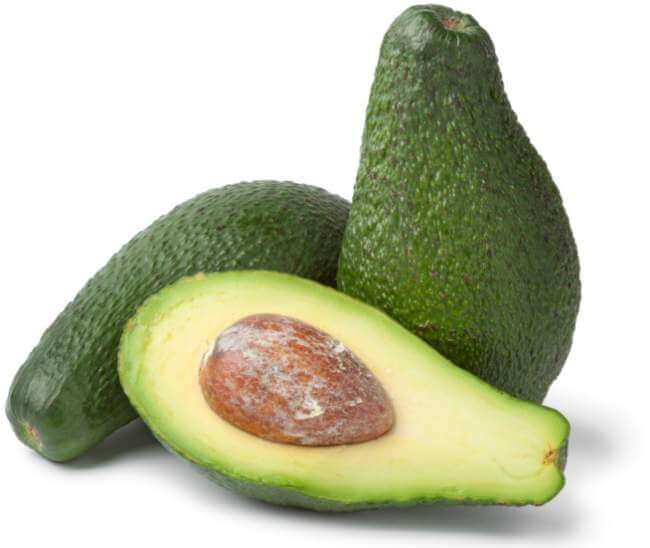
Avocados are loaded with healthy fats that can improve the health of your skin. These fats are necessary for keeping it moist and flexible. Research has shown that a diet high in healthy fats, specifically the ones found in avocados, contributes to skin elasticity and suppleness.
Research indicates that certain compounds found in avocados may protect skin from the damage of UV rays. UV rays can lead to premature aging and wrinkling of the skin. Avocados are also high in vitamin E, which helps prevent oxidative damage.
Vitamin E seems to work best when combined with vitamin C, which is also present in avocados. It’s required for the creation of collagen, which is a structural protein necessary for strong, healthy skin. Vitamin C also functions as an antioxidant, protecting the skin from UV and environmental damage, which contributes to premature aging.
Fatty Fish

Fatty fish are excellent choices for maintaining healthy skin. They’re typically found in fish like salmon, herring and mackerel. These fish are rich in omega-3 fatty acids, which help maintain thick, moist and supple skin. In fact, dry skin is often the result of a deficiency in omega-3 fats.
Omega-3 fats reduce inflammation, which is often to blame for acne and redness. This helps make the skin less sensitive to UV rays from the sun. Studies suggest that supplementing with fish oil supplements can help fight inflammation and autoimmune conditions like psoriasis and lupus.
Fatty fish are also loaded with vitamin E, which serves an important role as an antioxidant for the skin. Vitamin E helps protect the skin from damage caused by inflammation and free radicals.
Zinc is an important mineral found in fatty fish. It also helps regulate inflammation and aids in the production of new skin cells. Zinc deficiency is often to blame for skin lesions and delayed healing of wounds.
Walnuts
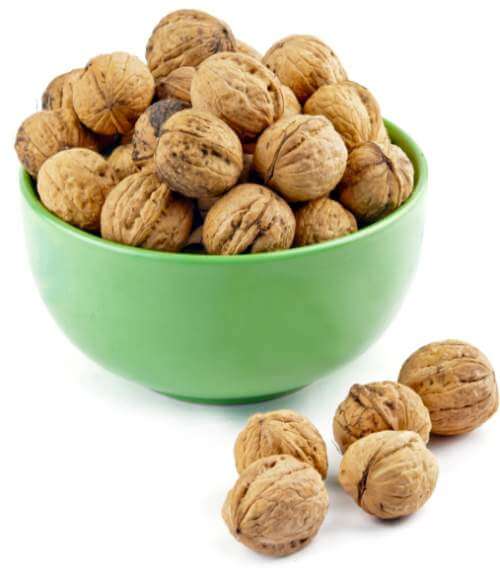
Like fatty fish, walnuts are another food that’s rich in essential fatty acids. Walnuts have more omega-3 and omega-6 fats than most other types of nuts. Interestingly, diets high in omega-6 fatty acids are known to promote inflammation, while omega-3 fats actually reduce it. The balanced ratio of these compounds makes walnuts a good choice for limiting the inflammatory response associated with excessive omega-6 fats.
Walnuts also contain zinc, which is critical for the proper healing of wounds and for fighting both inflammation and bacteria. They also contain vitamins E and C, as well as selenium and protein. These are all necessary for healthy skin.
Tomatoes
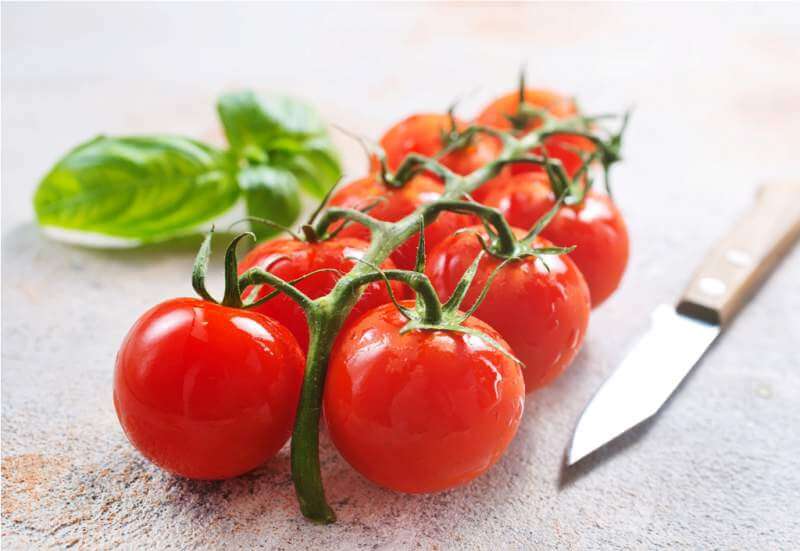
Tomatoes are loaded with vitamin C and contain all of the major carotenoids. Carotenoids like lutein, beta-carotene and lycopene protect skin from sun damage and help prevent wrinkling. However, fat is needed to assist in the absorption of carotenoids, so it’s a good idea to include foods like olive oil or cheese with tomatoes.
Sweet Potatoes

Sweet potatoes are an excellent source of beta-carotene, which is a nutrient found in various plants. It’s most common in dark-green and orange vegetables like spinach, carrots and sweet potatoes. In the body, beta-carotene is converted into vitamin A.
Beta-carotene acts as a natural sunblock, protecting skin cells from exposure to UV rays. This helps prevent sunburn, drying and wrinkling of the skin. It can also add a light orange color to the skin, giving it a healthier look.
Sunflower Seeds
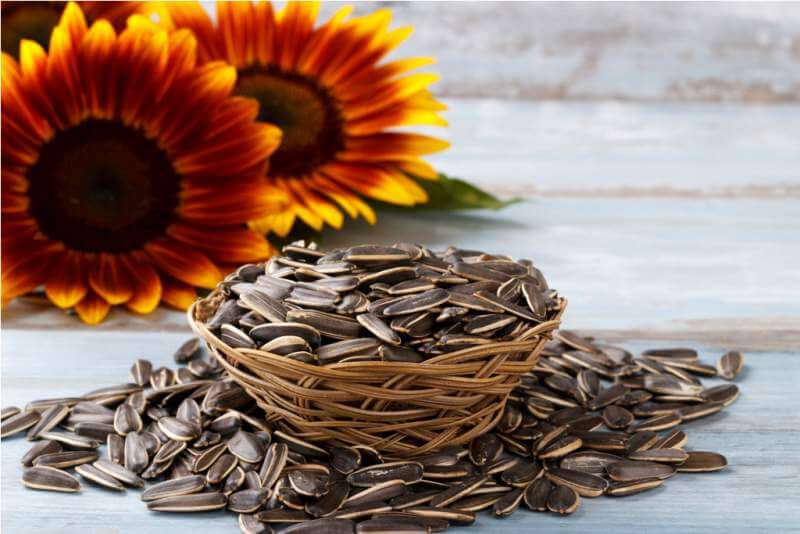
While seeds and nuts are all great sources of nutrients for healthy skin, sunflower seeds stand apart from the rest. Just one ounce of them contains up to 32 percent of the RDI for selenium, which is an important antioxidant. The same amount of seeds contains up to 10 percent of the RDI for zinc and 37 percent of the RDI for vitamin E, as well as 5.4 grams of protein.
Sunflower seeds are also a rich source of an omega-6 fat called linoleic acid, which helps skin stay thick, moist and flexible. Research has shown that linoleic acid reduces the risk of developing thin, dry skin.
Dark Chocolate
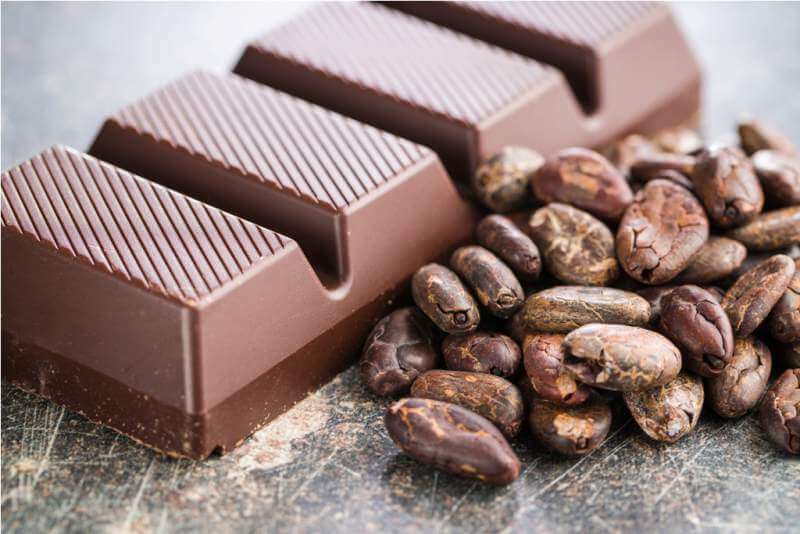
Contrary to popular belief, chocolate can also be good for you. It’s particularly beneficial for the health of your skin. The results of one study showed that participants’ skin became thicker and more hydrated after consuming cocoa powder for a period of 6 to 12 weeks. In another study, participants given 20 grams of high-antioxidant dark chocolate were able to endure twice as much ultraviolet radiation before burning as those given low-antioxidant chocolate.
Several other studies have produced results similar to these, including some involving wrinkles, skin texture and blood flow. Results seem to indicate that chocolate with at least 70 percent cocoa appear to maximize these benefits, while minimizing sugar intake.
Broccoli

Broccoli is loaded with vitamins and minerals necessary for healthy skin, including vitamin A, vitamin C and zinc. It’s also rich in lutein, a carotenoid similar to beta-carotene. Lutein functions as an antioxidant for the skin, protecting it from damage that can cause it to become wrinkled and dry.
Another special compound found in broccoli is sulfloraphane, which appears to fight various types of cancer, including skin cancer. Sulfloraphane also protects against damage from the sun by neutralizing free radicals and helping activate some of the body’s other protective systems.
Laboratory tests show that sulforaphane can reduce the number of dead skin cells from UV light exposure by up to 29 percent. This protection appears to last for up to two days. Additional studies show that sulforaphane helps maintain healthy collagen levels.
Green Tea

Green tea is another powerful food that appears to have the ability to reduce the effects of aging on skin. Catechins are the most powerful compounds present in green tea. Like other antioxidants, they work to protect skin from damage caused by the sun and other environmental factors.
The results of one 12 week study indicated that women who drank green tea daily were able to reduce redness caused by sun exposure by 25 percent. The study also showed an improvement in the thickness, elasticity and moisture of the participants’ skin. Note that it’s best to avoid drinking green tea with milk, since evidence appears to show that milk can counter the effects of the antioxidants in the tea.
Many of the foods above contain some of the same vitamins, antioxidants and other compounds. While each can provide their own unique benefits, they’re most effective as part of a diet high in green vegetables, seeds, nuts, fish and healthy fats.
Author Bio:
Jordan is the beauty and brains behind Beautifully Alive! She loves eating healthy and trying new recipes.The self-proclaimed Zumba Queen has a passion for beauty products and loves reading new books. She’s always down for a DIY project!
Supplement Post Recommendation: https://organicdailypost.com/supplements-the-ultimate-guide/
